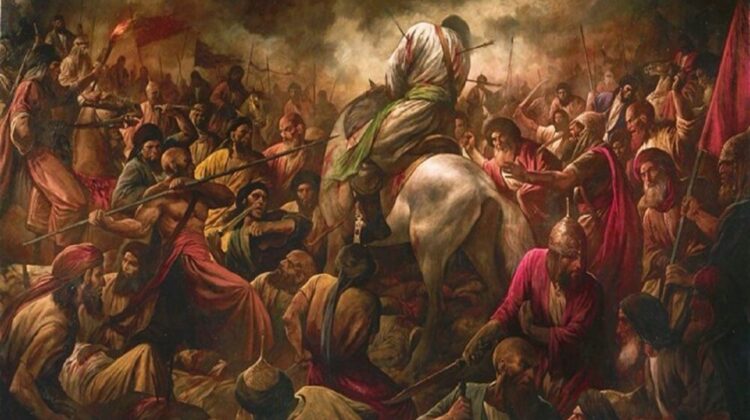
Just over 50 years after the passing of Muhammad, the last Prophet of Islam, the Muslim rulership began to crumble under the oppressive reign of the Umayyad dynasty, particularly under the tyrant Yazid. Amidst this corruption and moral decay, a beacon of courage and righteousness emerged: Hussain, the son of Ali and the beloved grandson of Muhammad.

Yazid’s rule was marked by ruthless oppression, and his cruelty knew no bounds. In contrast, Hussain stood as a figure of love and respect in the eyes of society. Recognizing the influence Hussain held over the people, Yazid hatched a plan to win his support, knowing that if Hussain sided with him, the masses might follow suit.
However, Hussain was faced with a grave decision. He could either align himself with the tyrant Yazid, ensuring a life of luxury and comfort, or he could stand against tyranny, likely leading to his own death. This was a choice that transcended personal comfort; it was a choice between his principles and the lure of power. Hussain, a man driven by a desire to spread goodness and prevent evil, chose the path of righteousness.
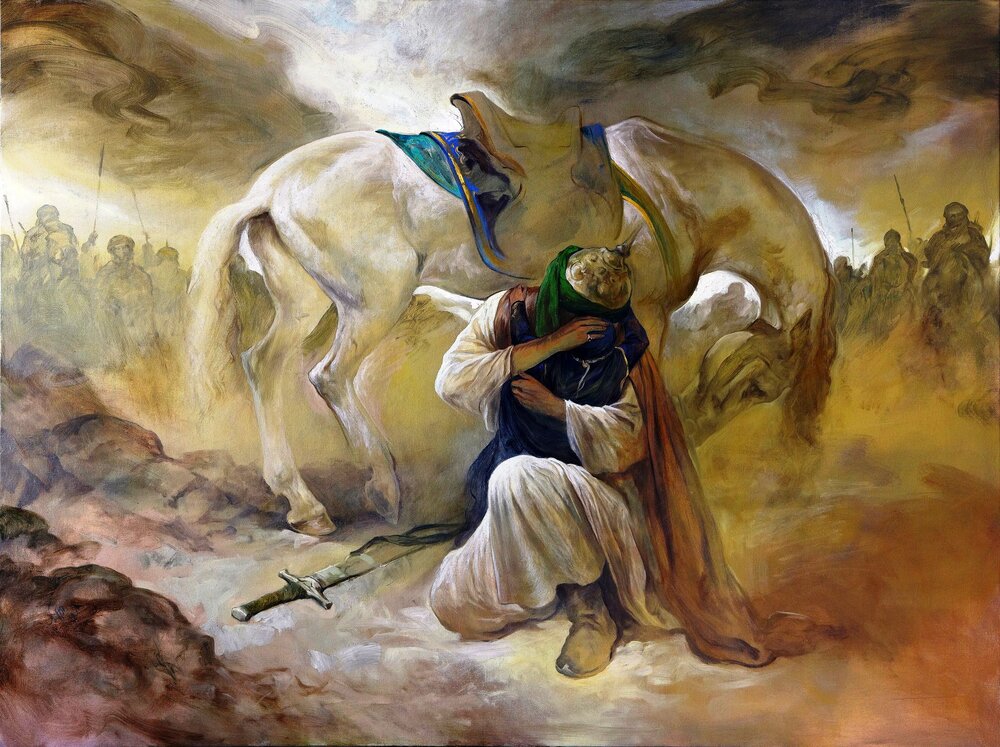
The threat of violence loomed large as Hussain’s refusal to support Yazid put his life in jeopardy. Aware of the danger, Hussain decided to leave his hometown of Medina and seek refuge in Mecca, a city he hoped Yazid would respect due to its significance in Islam. However, Yazid’s disregard for sanctity knew no bounds, and Hussain’s journey was marked by struggle.
Forced to abandon Mecca, Hussain headed towards Kufa, Iraq, where he had received messages of support. Yet, Yazid’s anticipation led him to send a massive army to block Hussain’s path, cornering him in the desert town of Karbala.
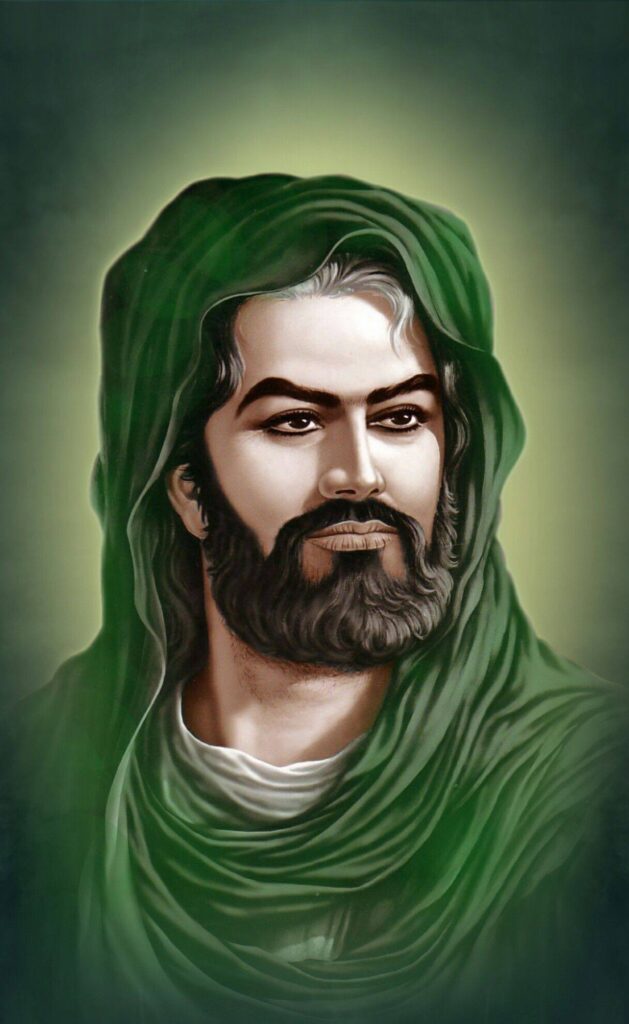
Despite being outnumbered nearly 30,000 to 1, Hussain remained unwavering. Even in the face of scarce resources and extreme conditions, he refused to surrender. Yazid’s final ultimatum gave Hussain the choice to submit to the oppressive regime or face death. Recognizing the inevitable, Hussain gathered his companions and encouraged them to escape, displaying his selflessness and concern for their safety.
Although his supporters had the opportunity to flee, they chose to stand by Hussain’s side. When the fateful day arrived, Yazid’s forces attacked. Hussain, along with his 72 loyal companions, fought valiantly until the end. Despite numerous promises of safety if he would bend to Yazid’s will, Hussain remained resolute in his principles and was eventually martyred, leaving an indelible mark on history.
Hussain’s unwavering stance against tyranny and his selfless sacrifice ignited a legacy that resonates through time. His example teaches us that a solitary individual can stand against an entire army when fueled by principles and a commitment to justice. Hussain’s sacrifice was not in vain; his courageous stand played a pivotal role in inspiring the overthrow of the oppressive Umayyad dynasty.
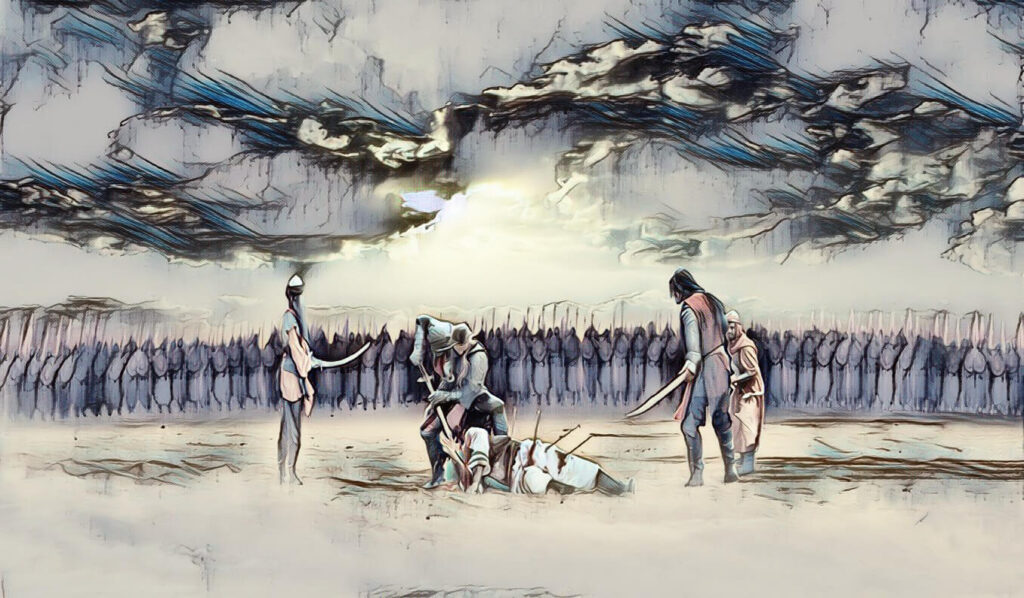
Following Hussain’s death, his family was taken captive. His sister, Zainab, rose to the occasion, assuming a leadership role and delivering a powerful speech in Yazid’s palace. Defying the societal norms of her time, she fearlessly held Yazid accountable for his actions and leadership style, challenging the moral decay he perpetuated.
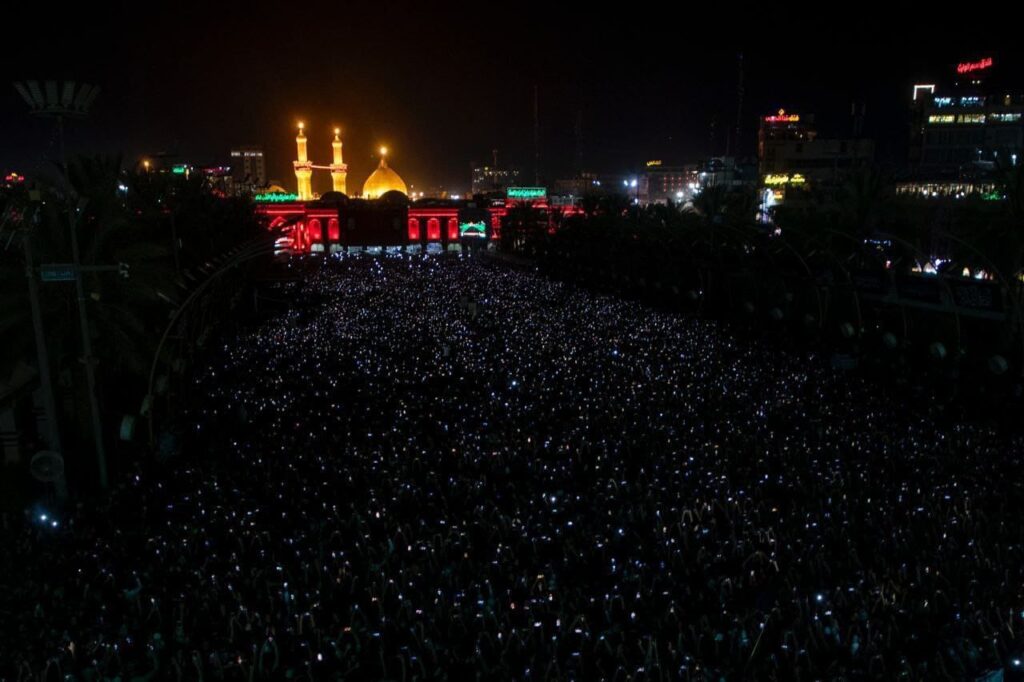
Hussain’s legacy is a testament to the power of one person’s principled stand. Even centuries later, millions pay homage to him, traveling from all corners of the globe to visit his resting place in Karbala. His story continues to inspire those who believe in justice, selflessness, and the courage to stand against oppression.

Leave a Reply